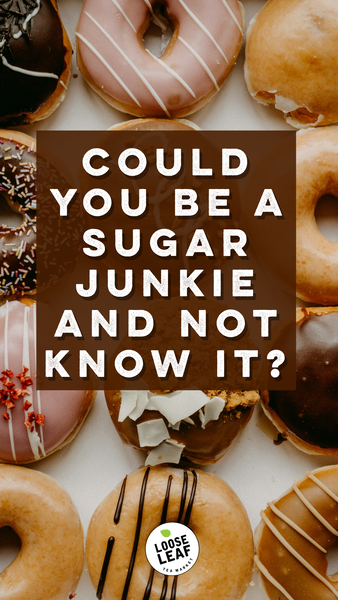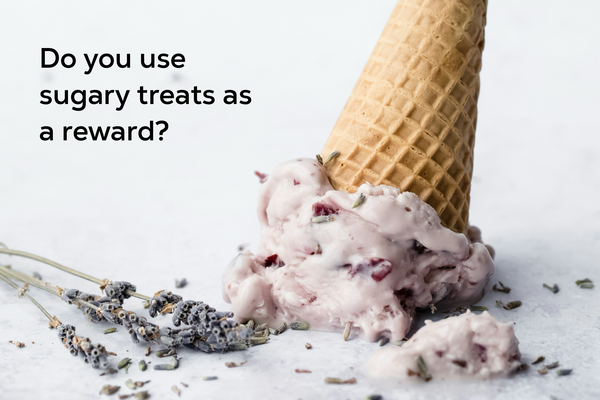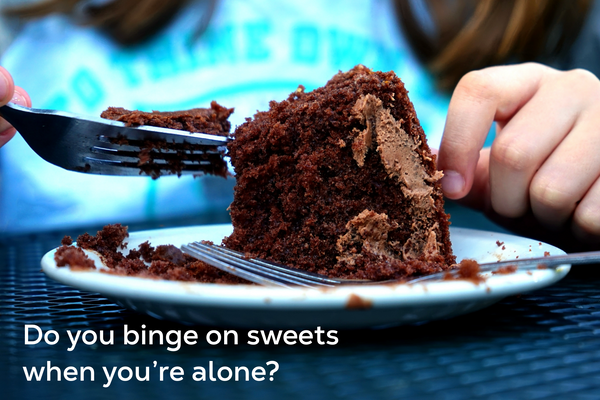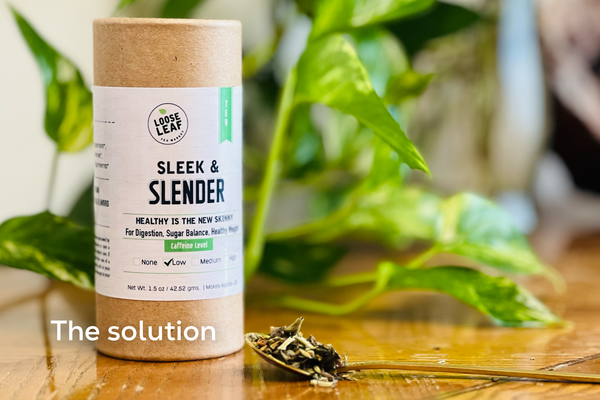Are you feeling sluggish, your pants are too tight, and you constantly crave sweets? You might be surprised to learn that you could be a sugar junkie without even realizing it. If you have been wondering: what are the symptoms of too much sugar, we're going to explore eight warning signs that may indicate you're addicted to sugar and what you can do about it.

Eight Sugar Addiction Symptoms
Constant Sugar Cravings
Do you find yourself constantly reaching for sugary snacks throughout the day, even when you're not hungry? Maybe it's that mid-afternoon slump at work that sends you searching for a candy bar, or those late-night cravings that have you raiding the pantry for cookies. If you can't seem to go a day (or night) without craving something sweet, you might be more dependent on sugar than you think.
Frequent Energy Crashes
If you're experiencing sudden energy dips throughout the day, especially after consuming sweets, it could be a sign of sugar dependency. Those post-sugar highs followed by crashing lows are caused by unstable blood sugar levels, and can leave you feeling drained and lethargic. This makes it difficult to get through your day without relying on another sugary pick-me-up, which perpetuates the cycle of sugar highs and crashes.

Using Sugar as a Reward
Rewarding yourself with sugary treats after a long day or a tough workout might seem harmless, but it could indicate a reliance on sugar for emotional comfort. Whether it's a scoop of ice cream to celebrate a victory or a piece of cake to unwind after a stressful day, using sugar as a reward can quickly become a habit that's hard to break. Sugar targets the same pleasure centers in the brain as cocaine, making a sugar an addiction on a par with drugs and alcohol.
Struggling with Weight
Because sugary foods are high in calories without any nutritional value, excessive sugar consumption is closely linked to weight gain and difficulty losing weight, even with regular exercise. If you find that you can’t shed those extra pounds no matter how hard you try, your sugar intake is sabotaging your weight loss efforts.

Your Jeans Are Too Tight
Sugar can cause bloating and inflammation in the body, leading to discomfort and clothes feeling tighter than usual. A diet high in sugar encourages harmful gut bacteria to thrive. If you're constantly feeling bloated or noticing that your clothes aren't fitting as they used to, sugary foods and drinks may be the culprit. Just one soda per day or one energy bar can be enough to tip your gut flora out of balance.
Making Excuses for Sugar Consumption
Do you find yourself justifying your sugar intake or downplaying its effects on your health? Whether it's convincing yourself that a little treat won't hurt or brushing off concerns about your sugar intake, making excuses for your sugar consumption could be a sign that you're in denial about the true extent of your dependency.
Frequent Mood Swings
Fluctuations in blood sugar levels can lead to mood swings and irritability. If you find yourself experiencing sudden changes in mood, from feeling happy and energetic one moment to cranky and irritable the next, it could be a sign that your blood sugar levels are on a rollercoaster ride due to your sugar consumption.

Binge-eating Sugar in Solitude
Sneaking sugary snacks when no one's around or feeling guilty about indulging alone could indicate a dependence on sugar. Whether it's raiding the pantry late at night when everyone else is asleep or hiding your candy stash in a secret drawer, binge-eating on sugar in solitude can be a telltale warning sign of addictive behavior.
What If I Don’t Even Eat A Lot Of Sugar?
According to the latest research, women should consume no more than 25 grams of sugar per day, the equivalent of 6 teaspoons of sugar (for men, 36 grams). A diet rich in fresh fruits, vegetables, proteins, and whole grains will provide all the sugar your brain and body requires to be healthy. However, you can easily surpass the 25 gram limit by consuming seemingly healthy foods like yogurt, granola, and sports drinks. A typical bottle of soda or sports drink can contain upwards of 44 grams of sugar, putting you well over your daily limit with just one beverage. So, you can see how easy it is to overdo it without even realizing it.
Other surprising sources of added sugars include: bread, salad dressing, BBQ sauce, condiments, oatmeal, pressed juices, nut butters, canned soups, and dairy-free milk alternatives.

So, What's The Solution?
Number one: start reading labels when you’re doing your shopping. Be on the alert for hidden sugars in foods that you would not expect.
And to make the biggest impact on your health (and weight), our popular tea blends: Sugarproof and Sleek & Slender, can make a huge difference in as little as thirty days. Both of these amazing teas contain an herb called Gymnema sylvestre, a botanical known for its ability to reduce sugar cravings and promote blood sugar balance. This herb also temporarily blocks your perception of the sweet flavor, causing sweet foods to taste bland and flavorless. Start drinking these teas to kick your sugar addiction to the curb and reclaim control of your health. You may also find that those extra pounds begin to drop off, and your jeans start fitting better.
Get both Sleek & Slender and Sugarproof together in the Sugar-Busting Tea Bundle
If you enjoyed this, read about how to slay those sugar cravings for good
*This information has not been evaluated by the FDA, and is not intended to diagnose or cure a medical issue, or replace professional medical care. If you are pregnant or nursing, are under the care of a physician, or on prescription medication, talk to your health care provider before making any changes to your diet or routine.


